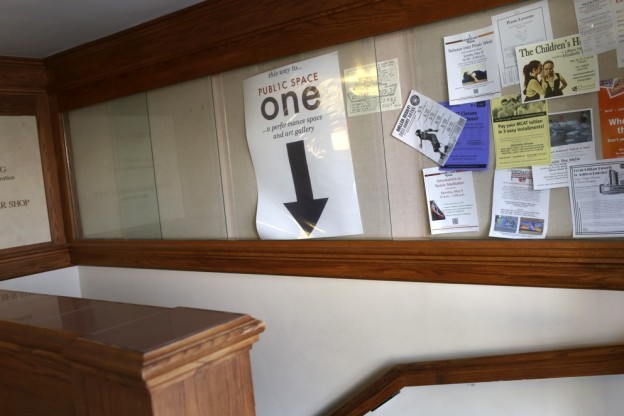Most people have no idea what Afrofuturism means.
“We’re speaking about what will it mean or be like to be a person of color next week, two years from now, or 20 years from now,” said Anaïs Duplan, 23, the director of the Center for Afrofuturst Studies.
The center will host eight artists from all over the country this spring in collaboration with Public Space One with hopes to increase diversity in the community.
Duplan said hosting the center here was important because Afrofuturism is a conversation that not many people are having in Iowa City.
“Because this isn’t New York or Chicago, where these things are already happening, it’s pretty new to Iowa City which is a nice opportunity to bring people here who can start a brand-new discussion,” she said.
Duplan hopes that the name won’t scare people and overshadow the center’s mission. She said she believes the center is something a lot of people will be interested in, regardless of any experience or knowledge in the areas they’ll be thinking about.
“The future is something you can assemble a lot of people around because everyone wants to talk about the future,” she said.
John Engelbrecht, the director of Public Space One, said he felt the collaboration with the center fit perfectly with its mission to reach populations that aren’t normally reached through art galleries.
“From our standpoint, we’re interested in divergent viewpoints, in a diverse community and whatever we can do to continue down that path is of interest to us,” he said.
Kalmia Strong, the program director of Public Space One, said she thinks the center will make a space for interesting and experimental art.
“Iowa City has a lot of interesting things going on, but it doesn’t have an art scene like Los Angeles, Chicago, or New York,” she said. “I think that this will bring a concentration of cutting-edge art making that we don’t normally have here.”
Strong said she thinks Afrofuturism will affect the community because it’s a strand of art that focuses on the work of people of color, which is something that isn’t happening in Iowa because of the lack of diversity.
“The Center for Afrofuturst Studies will let people engage in conversations with people who are doing this work and will help make this great connection and conversation within our local community and something really interesting going on in contemporary art in the United States,” Strong said.
Engelbrecht said it’s a well-known fact the population of Iowa City is marginalized, and if he can help expand the community through the Center for Afrofuturst Studies, he will be happy to play his part in that.



